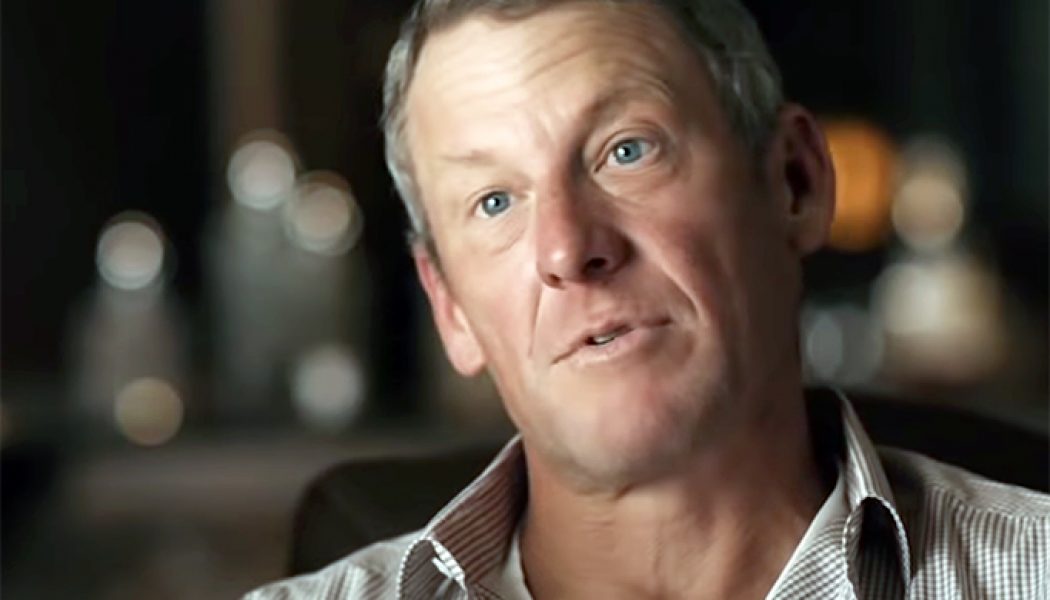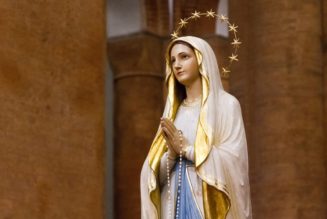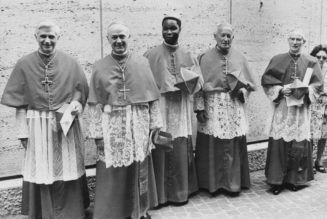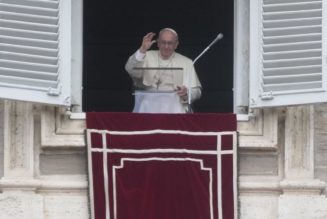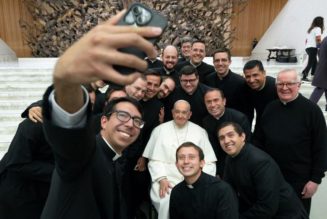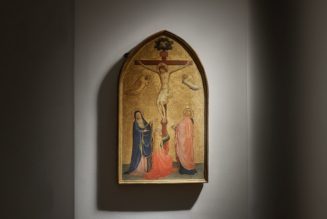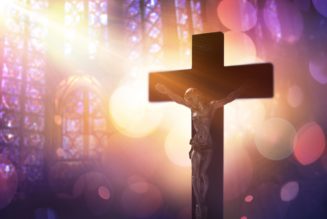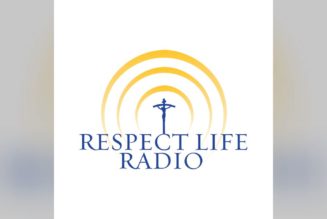
Individual sin, however private it may have seem, always has an effect on others.
During this time of quarantine, one of the biggest examples of how much things have changed has been the disappearance of professional sports.
However, ESPN has been broadcasting a series of spectacular documentaries on Sunday evenings. I’m not an absolute sports nut, but something about the combination of professional athletes, especially ones at the absolute top of their game, combined with documentary style films, was just irresistible. I’ve sat down nearly every Sunday evening to watch them, including the four-hour Lance Armstrong documentary.
One of the reasons these documentaries are so compelling and draw so much interest is precisely because they reveal to us something that often goes unnoticed in our daily lives. They tap in to what St. John Paul II called the “big questions” and they reveal, even in their obstinate attempts to avoid them, how we must all confront these ontological and metaphysical realities.
Furthermore, these athletes often reveal not just fundamental truths about basic human nature, but even point us to some of the ecclesial and theological truths specific to a Catholic worldview.
First, a bit of necessary background on Lance Armstrong.
He began his athletic career in middle school with swimming, and then pursued triathlons. He was remarkably successful and earned victories at many prestigious triathlon events for youth. In fact, he was so dominant that he began entering competitions outside of his age range simply by lying about his birth date on applications. Very often, he won these races against older and stronger competitors.
Eventually, Lance decided to focus more exclusively on bike races and leave the triathlon competitions behind. After racing professionally for four years and beginning to climb the ranks of professional cyclists, Armstrong was diagnosed with testicular cancer. He then was forced to take time off to seek medical treatment. As he indicated in the recent documentary, he had already begun using performance-enhancing drugs and treatments, including human growth hormone, at this stage in his career.
After his temporary retirement and successful cancer treatment, Lance resumed his cycling career and set his eyes on competing in Europe and especially in the Tour de France. As is well-known by now, he would eventually rise to the top of the world in cycling, winning the Tour a record seven times in a row. During this time-frame, Armstrong also started up his Livestrong Foundation to raise awareness and funds for cancer research and treatment. The dual fact of his overcoming cancer and transforming the world of cycling made him an A-list celebrity and his story became one of the most popular feel-good comeback narratives in recent memory.
Unfortunately, it was all built on a lie.
Throughout much of his professional career, but especially during his run as the reigning champion of the Tour de France, Lance Armstrong had been doping. It would be years before the story broke, but he faced allegations in real time, during his competitive years. His reaction to the accusations was intense and often involved legal retaliation against those who were simply telling the truth. Lance used his considerable financial and social leverage to crush and destroy former teammates, even friends who had visited him in the hospital when he seemed to be near death due to his cancer.
For years, Lance was on a crusade to silence the truth about his use of performance-enhancing drugs and present an image to the world that he was a champion merely because he wanted it more and trained harder, and not because he had a competitive edge. Understandably, part of his concern was probably due to his role in raising funds for cancer treatment and awareness. And it is precisely this complex and twisted, confusing situation that reveals the theological angle here.
For Lance, as for us, when we’ve sinned, it is very difficult to own up to it flatly and plainly. The more common reaction to our own sin might look like this: shifting the blame to someone else or to a systemic problem, minimizing our own guilt by feigning ignorance, explaining the complexities of the situation in an attempt to lower our own responsibility. I’m tempted as I write to describe this as our natural, human reaction to sin. But it’s not.
It’s, in fact, demonic. Not in a Hollywood sort of way, but in the sense of the fall of Adam and Eve in the garden. The devil, in the guise of a serpent, shows up and confuses Adam and Eve and dupes them into sinning against the Lord. Then when God realizes what has happened, how do Adam and Eve respond? Not with the plain and simple truth. Instead, they answer with complicated mutual recrimination.
The consequences of this kind of reaction to sin — to cover it up, obfuscate, ignore, remain silent, and so on — can be disastrous for the person involved. But it extends beyond the sinner. Again, return to the garden. Adam and Eve’s sin has three consequences. It destroys the relationship between humanity and God, between man and woman, and even the order and harmony of the sole individual human person. From then on, human beings can’t even trust their own selves! We also have to distrust others. And when a fundamental component of our existence means calling into question everyone else, well, that creates a real mess. Which, of course is what we see in the book of Genesis as things quickly spiral out of control.
The central point here is that individual sin, however private it may have seem, always has an effect on others. St. Thomas Aquinas argued that one of the foundational principles of the natural law is that human beings are made to live in communion with others. We need and are made for a connection and cooperation with other people. We’re not meant to be isolated, and in a very real sense, we can’t be. The consequence of this foundational principle is that sin will necessarily impact someone beyond just the sinner. Sin, then, is a personal and an ecclesiological problem. It wounds the body of Christ. St. Paul speaks of this when he tells us that if one member of the body hurts, all the other members in some way suffer (1 Corinthians 12: 26).
Now, this brings us to the real point, the solution: the sacrament of confession or reconciliation. The Catechism uses both terms (as well as a few others) to refer to this sacrament. Each name reflects a different emphasis or a different dimension of the grace we receive. There are two distinct things going on. On the one hand, we confess our sins. We admit to our failings and accept our own responsibility in that failure. But what is the result? We are restored, reconciled to God and, let’s not forget, reconciled to the Church. A member is healed and restored to membership with the rest of the body.
But notice: For us to be reconciled, we have to confess. We can’t simply be reconciled to the body without that painful and honest confession of our sins. This is precisely where I found the Lance Armstrong documentary so beguiling.
On the one hand, it shows Armstrong publicly admitting his failures. He famously went on Oprah in 2013 to admit to the cheating, particularly in the Tour de France. And in the documentary he says time and time again how lying became second nature. At one point the producer asks him how could he look at himself in the mirror and he immediately says, “No problem!” He tells her he was very comfortable with lying and that it didn’t cause him any trouble at all.
As the film rolls on, what you see is Armstrong’s inability to reconcile with others, precisely because he won’t confess. Sure, he’s admitted in large part what he’s done. But none of that confession or admission is frank and simple. It’s complex. In his own words, he finds it all very complicated and doesn’t know the difference between good people who do bad things and bad people who do good things, and which one he is. There’s a certain lawyerly reticence in his discussions about cheating. He tries to make unnecessary distinctions between breaking rules, between breaking the law, between the morals or ethics versus the legality.
And it’s easy to look at someone in his position and just point out the obvious. But what’s maybe not so easy is to realize the times we may do this ourselves. Whether that’s in our daily lives or, heaven help us, when we’re going to confession.
In the film, Lance’s former teammates, all of whom doped their way through their careers to some extent, are asked about how they feel now that the cat is out of the bag. The contrast between Armstrong’s halfway hemming and hawing, his ego-protecting verbiage disguised as an apology, could not be more stark. They all plainly admit that what they did was wrong; it was a bad decision, they regret it. Tyler Hamilton describes it like this:
The first 15 minutes were hard, but the next six hours and 45 minutes were like … I don’t know, almost like a religious experience for me, like just unloading all this darkness that had been just — I had buried, kept burying and burying and burying. I was always surprised that like, how has this been kept under wraps for so long, you know? It was too big of a secret for it not to come out, you know? But I always thought to myself, hopefully it comes out 10 years after I’m retired and I don’t have to deal with it.
This is, to my mind, what a simple confession can do. It gives us the peace and freedom to be able to finally move on from the sins that have weighed us down. Goodness knows, in my own life, I’ve had sins I wasn’t able to plainly admit, even to myself. Thankfully in confession we don’t have to tell the whole world about our sins — but still, if we’re not able to be frank and truthful, it will be much more difficult to receive the peace the Lord wants to give us through the sacrament.
